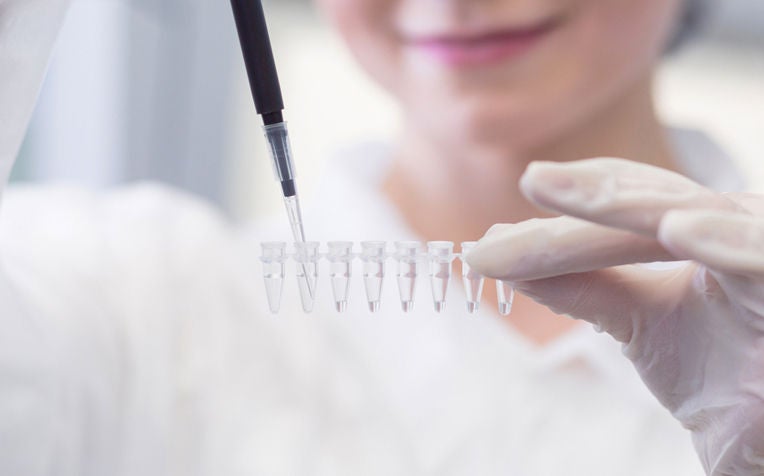HealthXchange will NEVER ask you to transfer money over a call. If in doubt, call the 24/7 ScamShield helpline at 1799, or visit the ScamShield website at www.scamshield.gov.sg.
Non-English translations are machine-generated; verify independently for
potential
inaccuracies.
Let us help you find what you're looking for.
Popular Searches
Targeted Therapy: What It Is and How It Works


Targeted therapy: How it works and why clinical trials are important.
Hope for extended survival - clinical trials
Sometimes, although a mutation is identified, a suitable drug may not be available yet. This is where the numerous ongoing active clinical trials play an important role, offering hope for prolonged survival. There are about 120 to 150 trials ongoing in Singapore alone.
When a patient is diagnosed with a cancer, a biopsy of the tumour is done and sent to the lab for analysis. If the cells don’t have a mutation that can be targeted, regular chemotherapy is the treatment of choice. “If a patient has a mutation, we will suggest targeted therapy if it’s available. If not, we’ll offer the patient a clinical trial. Many of these trials are in their final phases, meaning the safety of the new drugs has already been proven,” said
Dr Ravindran Kanesvaran, Consultant, Division of Medical Oncology, National Cancer Centre Singapore (NCCS).
And as long as the tumour continues to shrink, the same targeted treatment can be continued. However, in some cases, after about two to three years, the cancer cells evolve and find alternative mutations with which to drive the cancer. “Potentially, if there are drugs that can treat the new mutation, the patient can continue on for years, just like someone with diabetes or other chronic diseases,” said Dr Ravindran.
How targeted therapy works
By blocking growth signals
Cell surfaces have proteins that, like antennae, receive signals that prompt the cells to grow and divide. But cancer cells with too many of these proteins can pick up too many growth signals, and end up growing and multiplying uncontrollably. Targeted therapy drugs block growth signals from reaching the cancer cells. Some of these drugs are trastuzumab (breast cancer), gefitinib (lung cancer), imatinib (leukaemia and gastrointestinal cancers), and cetuximab (bowel cancer, and cancers of the head and neck).
By blocking blood supply
New blood vessels are constantly forming in the body, to heal wounds and repair damaged tissues. But this also creates new, very small blood vessels that give a tumour its own blood supply, allowing it to grow rapidly. Targeted therapy drugs can block the growth of these blood vessels. Some of the drugs in this category are bevacizumab (bowel, kidney and lung cancers), sorafenib (kidney and liver cancers), and sunitinib (kidney and stomach cancers).
By causing cell death
Damaged cells in the body die naturally. But cancer cells develop ways to avoid natural death. Targeted therapy drugs disrupt the cancer cells’ various survival techniques. One such drug is bortezomib (multiple myeloma).
Ref: N18
Contributed by
Related Articles

Management
Childhood Cancer: Treatment Options and Cancer Programme

Prevention
Coping With Chemotherapy Side Effects: Infection, Joint Pain and Sore Mouth

Management
Cancer Treatment: Targeted Therapy Offers New Hope

Management
Complementary Therapies and Medicine During Cancer Treatment - Doctor Q&A
Conditions & Treatments
Public Events
24 Feb 2026
Talks
Health Talk: Chronic Kidney Disease @ SHP-Outram
Free, no registration required. Please walk in to clinic at specified date and time.
Learn More
24 Feb 2026
Talks
Health Talk: Fall Prevention @ SHP-Tampines
Free, no registration required. Please walk in to clinic at specified date and time.
Learn More
24 Feb 2026
Talks
Health Talk: Fall Prevention @ SHP-Tampines North
Free, no registration required. Please walk in to clinic at specified date and time.
Learn More
24 Feb 2026
Seminars
National Precision Medicine Alliance (NPMA) Meeting
Free
Learn More
Tags
Get the Health Buddy App
© 2025 SingHealth Group. All Rights Reserved.














 Get it on Google Play
Get it on Google Play